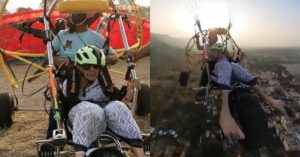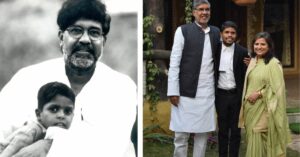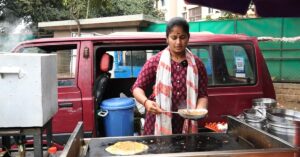Old Culture, New Values: This Naga Village Has Transformed Women’s Lives for 10 Years
NEN is also trying to revive traditional farming practices like millet-based biodiverse agriculture in villages.
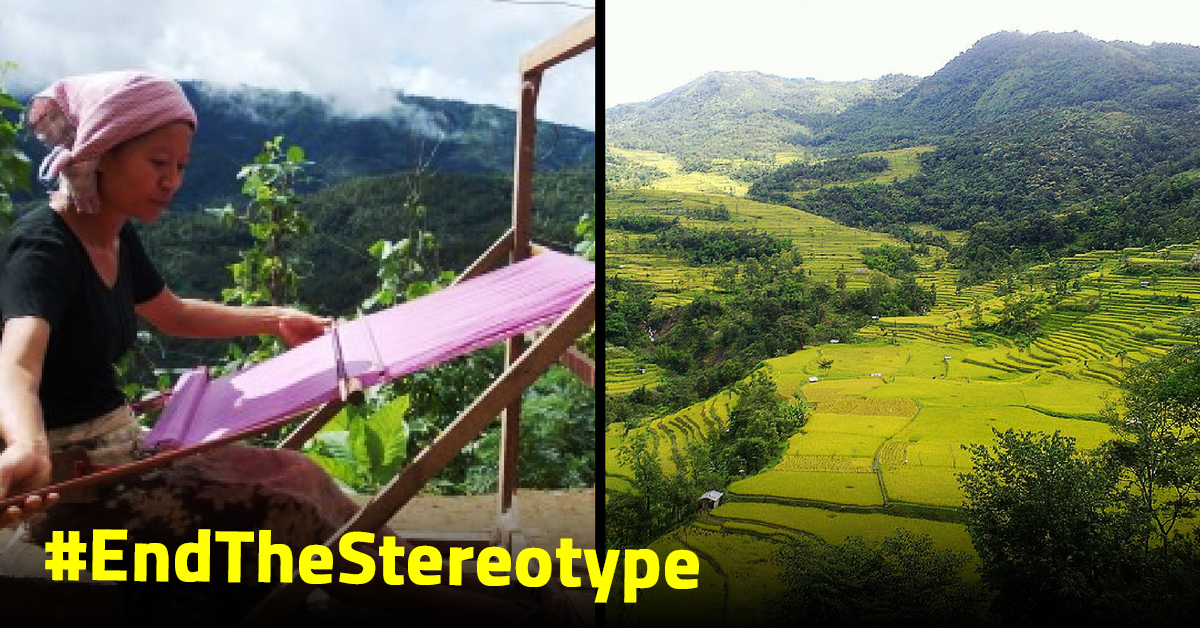
Over 370 million people from indigenous tribes across the world continue to struggle to preserve their traditional ways amidst a changing world that seems to have little space for traditional methods.
But amid this struggle, one village in Nagaland is at the forefront of championing women’s rights, supporting sustainable livelihood and restoring traditional food systems and agricultural practices.

Chizami, a small village in Phek district, has implemented socio-economic reforms and environmental protection for over a decade and is now a model village in the state.
And all of this thanks to economically marginalised women, who have played an essential role in bringing about this transformation while keeping it rooted in traditional practices.
The impetus for this can be said to have been sparked by Monisha Behal, a woman’s right activist and the founder of the North East Network (NEN).
Behal came to Nagaland in 1994, hoping to improve the women health standards of the state.
In 1996 when she was conducting a workshop in Pfutsero, Behal met Seno Tsuhah. Seno worked as a teacher at a government primary school in Sumi, a village adjacent to Chizami. She was a representative of the Chizami Women’s Society (CWS).
The partnership they developed eventually grew into the Nagaland chapter of the NEN.
At the time, Nagaland was emerging from a sixty-year conflict, so it was critical to engage and empower the youth to bring socio-economic change.
The duo started with health, sanitation, and nutrition, and then expanded their work to other areas as well.
NEN, along with the CWS, started skill enhancement programmes such as bamboo craft, food processing, organic farming, rooftop water harvesting and low-cost sanitation, along with discourses on governance, women empowerment, and human rights issues.
It took eight long years, but Seno
even managed to convince the village council that women deserve equal pay as men in unskilled farm labour.
And in January 2014, the village council passed a resolution for equal wages in agricultural labour. By the next year, another landmark move came – two women inducted into the Enhulumi village council.
Weaving is present in every Naga household, but due to a lack of entrepreneurship and viability, it had been steadily declining across the state. NEN decided to preserve this tradition along with creating livelihood opportunities for marginalised women.
That is how, in 2008, Chizami Weaves was born. The seven weavers they started with has now grown to over 300 women
in Chizami and ten other villages in the Phek district.
Experts from Delhi and Mumbai helped them develop new products and introduce new colours other than the traditional black, white and red, and they have also expanded beyond shawls as well, going into stoles, cushion covers, belts, bags, mufflers, coasters, table mats and runners. These products are now sent to emporiums in metropolitan cities like Bengaluru, Mumbai, New Delhi, and Kolkata.
Chizami Weaves also promotes textiles made by loin loom or the backstrap loom, one of the oldest forms of the loom, still traditionally being used by the Chaksang Nagas and other North Eastern tribes.
The weavers providing for their families and also make their presence known by speaking up about public health, livelihood, environment, and other such issues.
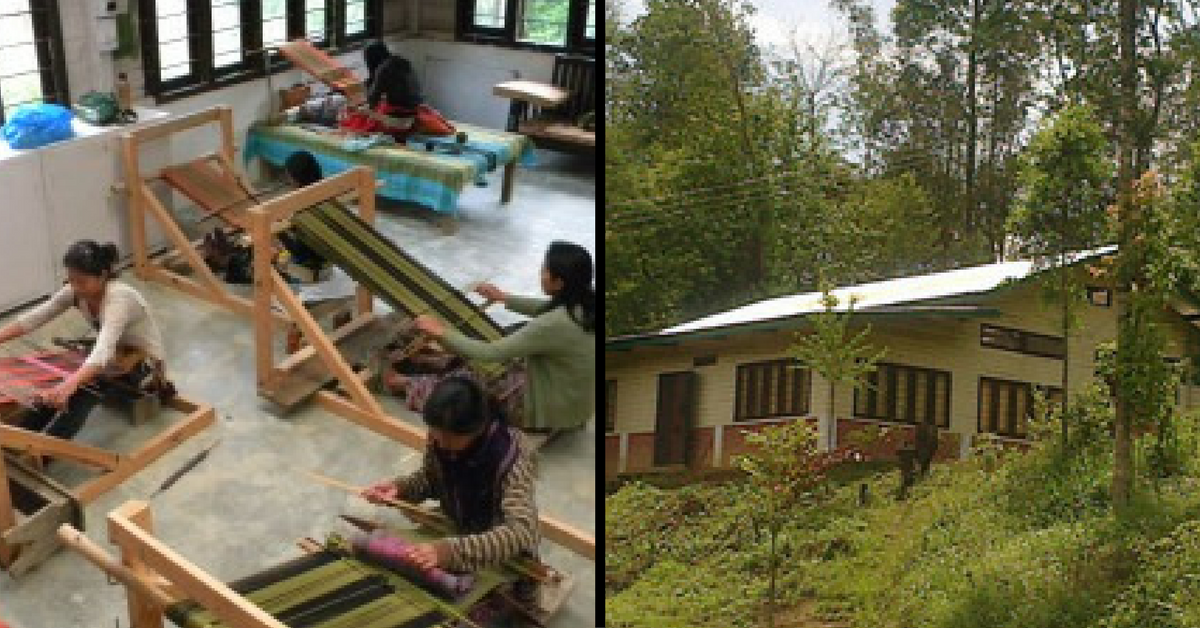
NEN is also trying to revive traditional farming practices like millet-based biodiverse agriculture in villages. Such crops fare better in this climate as they are resilient, apart from having various health benefits. 150 farmers from eight villages now practice millet-based farming, thanks to awareness raised.
A group of female farmers have come together to manage traditional seed banks in Chizami and are also promoting sustainable agricultural practices. To bring more attention to millets, they’ve even revived Ethsuunye, a five-day millet festival.
Alder trees have been planted along with traditional Naga leafy vegetables to enhance traditional agricultural practices.
The central government has recognised the efforts of NEN and CWS. Seno has been awarded the Stree Shakti Puraskar in 2005, 2006, and 2007 by the Ministry of Women and Child Development for “dedicated and selfless work in the field of women development and empowerment in the face of extreme difficulties and challenges”.
Indeed Chizami Za (Chizami Day) was celebrated on 8 January 2015 for the first time. Their theme? Recognising history, celebrating the present, and inspiring the future.
All of this is to end that stereotype once and for all – different means backwards. Tribal practices that have brought such change in Chizami are constantly endangered as they lose lands, traditional methods and knowledge due to a constant drive towards ‘monoculture modernity’.
However, the knowledge of the ages gained by such tribes, their customs and culture, have an equal place in this world and do not deserve to be considered ‘primitive’.
The work of groups like NEN go a long way in proving this, and one hopes their work spreads far and wide.
#EndTheStereotype
This story is part of The Stereotypeface Project, an initiative by The Better India that challenges 26 stereotypes, which continue to exist even today. We are showcasing these stereotypes through all the letters of the English language alphabet.
Stereotypes exist everywhere — they are passed down over generations. Instead of embracing and celebrating what makes us unique, we stand divided because of them!
We’ve unconsciously learned to stereotype, now let’s consciously #EndTheStereotype.
Visit www.stereotypes.in to know more about the campaign and support the effort!
How can you support this campaign?
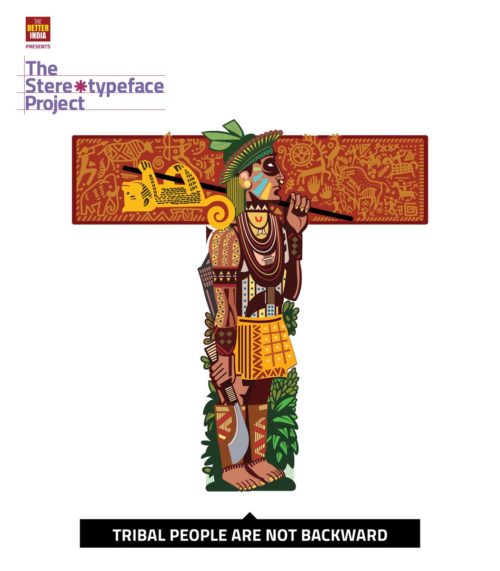
1. Follow this thread on Twitter or Facebook
2. Re-Tweet / Re-share the stereotypeface that you would like to put an end to
3. Use #EndTheStereotype and tag @TheBetterIndia
Like this story? Or have something to share? Write to us: [email protected], or connect with us on Facebook and Twitter.
This story made me
- 97
- 121
- 89
- 167
Tell Us More
We bring stories straight from the heart of India, to inspire millions and create a wave of impact. Our positive movement is growing bigger everyday, and we would love for you to join it.
Please contribute whatever you can, every little penny helps our team in bringing you more stories that support dreams and spread hope.






